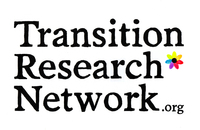Multiple sites of dissemination+background
This can be an issue of limited resources as much as a lack of will or knowledge of other networks/audiences; though increasingly, funds are available for academic research in particular to disseminate findings to non-academic "users" - see [Making[[Making a Difference].Difference]].
Sometimes it is an issue of findings not being disseminated in formats that are appropriate to the intended audiences. For this reason, some of the best examples of research use different media, modes and formats - for example websites, presentations, interactive or physical community maps, podcasts, film, other creative media, posters, advertising campaigns, etc, as well as more traditional articles and reports. The format chosen should depend on the topic, intended audience and desired impact.
Involving local Transition initiatives in dissemination can be a good way of making sure that new knowledge gets to those to whom it may be useful. Such events often generate a lot of interest and can help raise the group's profile and credibility locally. They also provide a good excuse for local and/or regional networking.
Disseminaton of the Connection, Participation and Empowerment project included regional 'Theory of Change' events organised by groups who had taken part in the project's early stages. Most participants valued the opportunity for regional networking as a useful outcome in itself, regardless of the content. If possible, build a local dissemination event into your research. In a funded project, including some financial support for local hosting can be a good way to [[sharing resources|share resources]].
Project websites are a good way to share findings and outputs, and can cater to multiple audiences. A good example is Mr. Seel's Garden. The [[Transition Research Network]] provides web space on its projects page - sometime for projects without their own website, sometimes linking back to the main project site.
The Transition Research Network also disseminates research news through dedicated Transition media: a summary of new publications in the Transition Network newsletter and regular articles in the Transition Free Press.
